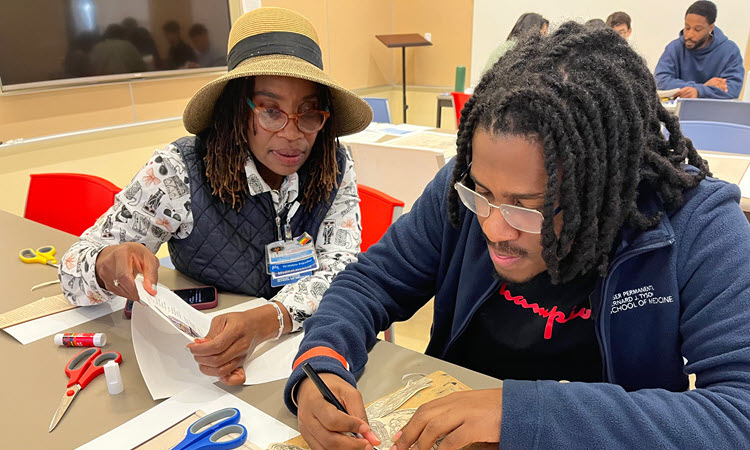A recent study co-authored by two Kaiser Permanente Bernard J. Tyson School of Medicine faculty members shows that as treatment for alcohol abuse shifted to telehealth or “e-visits” during the COVID-19 pandemic, some patient populations experienced increased barriers to treatment while others benefited from the change.
The research, titled “COVID-19 pandemic-related changes in utilization of telehealth and treatment overall for alcohol use problems,” was published in the peer-reviewed journal Alcoholism: Clinical and Experimental Research and was co-written by Cynthia Campbell, PhD, MPH, Associate Professor of Health Systems Science, and Stacy Sterling, DrPH, MSW, MPH, Associate Professor of Health Systems Science.
The researchers examined electronic health record and claims data from Kaiser Permanente Northern California for adults with alcohol use problems in 2019 (prior to the pandemic) and 2020 (the onset of the pandemic), and analyzed treatment initiation, engagement, and number of days in treatment). Factors including age, race, and ethnicity; neighborhood deprivation index (NDI); and comorbid medical and psychiatric disorders were also considered.



